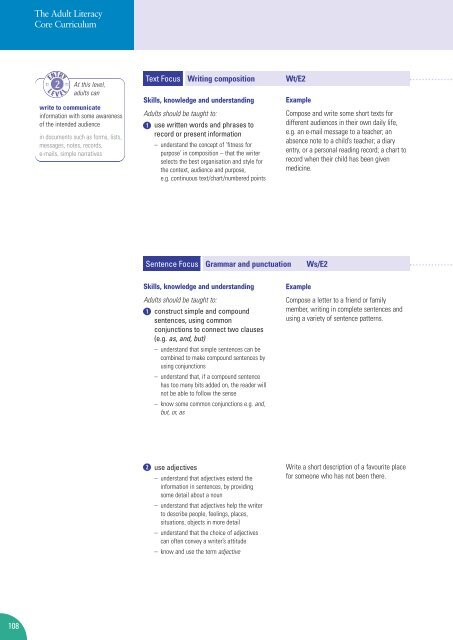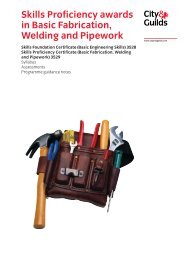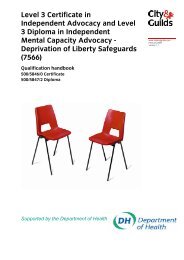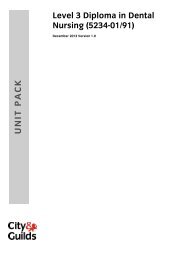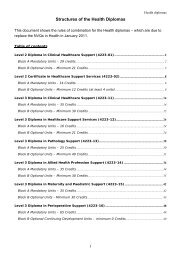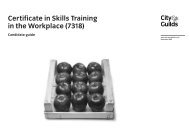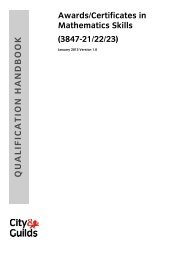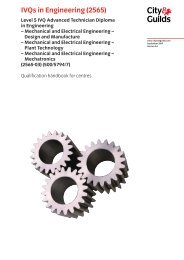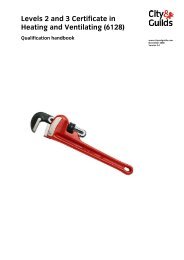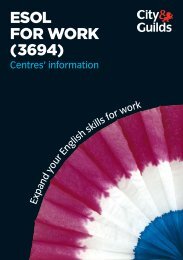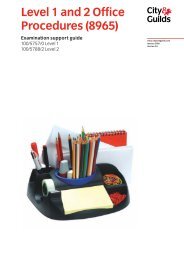Adult Literacy Core Curriculum - Nationally developed Skills for Life ...
Adult Literacy Core Curriculum - Nationally developed Skills for Life ...
Adult Literacy Core Curriculum - Nationally developed Skills for Life ...
You also want an ePaper? Increase the reach of your titles
YUMPU automatically turns print PDFs into web optimized ePapers that Google loves.
108<br />
The <strong>Adult</strong> <strong>Literacy</strong><br />
<strong>Core</strong> <strong>Curriculum</strong><br />
At this level,<br />
adults can<br />
write to communicate<br />
in<strong>for</strong>mation with some awareness<br />
of the intended audience<br />
in documents such as <strong>for</strong>ms, lists,<br />
messages, notes, records,<br />
e-mails, simple narratives<br />
Text Focus Writing composition Wt/E2<br />
<strong>Skills</strong>, knowledge and understanding<br />
<strong>Adult</strong>s should be taught to:<br />
1 use written words and phrases to<br />
record or present in<strong>for</strong>mation<br />
– understand the concept of ‘fitness <strong>for</strong><br />
purpose’ in composition – that the writer<br />
selects the best organisation and style <strong>for</strong><br />
the context, audience and purpose,<br />
e.g. continuous text/chart/numbered points<br />
<strong>Skills</strong>, knowledge and understanding<br />
<strong>Adult</strong>s should be taught to:<br />
1 construct simple and compound<br />
sentences, using common<br />
conjunctions to connect two clauses<br />
(e.g. as, and, but)<br />
– understand that simple sentences can be<br />
combined to make compound sentences by<br />
using conjunctions<br />
– understand that, if a compound sentence<br />
has too many bits added on, the reader will<br />
not be able to follow the sense<br />
– know some common conjunctions e.g. and,<br />
but, or, as<br />
Example<br />
Sentence Focus Grammar and punctuation Ws/E2<br />
2<br />
use adjectives<br />
– understand that adjectives extend the<br />
in<strong>for</strong>mation in sentences, by providing<br />
some detail about a noun<br />
– understand that adjectives help the writer<br />
to describe people, feelings, places,<br />
situations, objects in more detail<br />
– understand that the choice of adjectives<br />
can often convey a writer’s attitude<br />
– know and use the term adjective<br />
Compose and write some short texts <strong>for</strong><br />
different audiences in their own daily life,<br />
e.g. an e-mail message to a teacher; an<br />
absence note to a child’s teacher; a diary<br />
entry, or a personal reading record; a chart to<br />
record when their child has been given<br />
medicine.<br />
Example<br />
Compose a letter to a friend or family<br />
member, writing in complete sentences and<br />
using a variety of sentence patterns.<br />
Write a short description of a favourite place<br />
<strong>for</strong> someone who has not been there.


